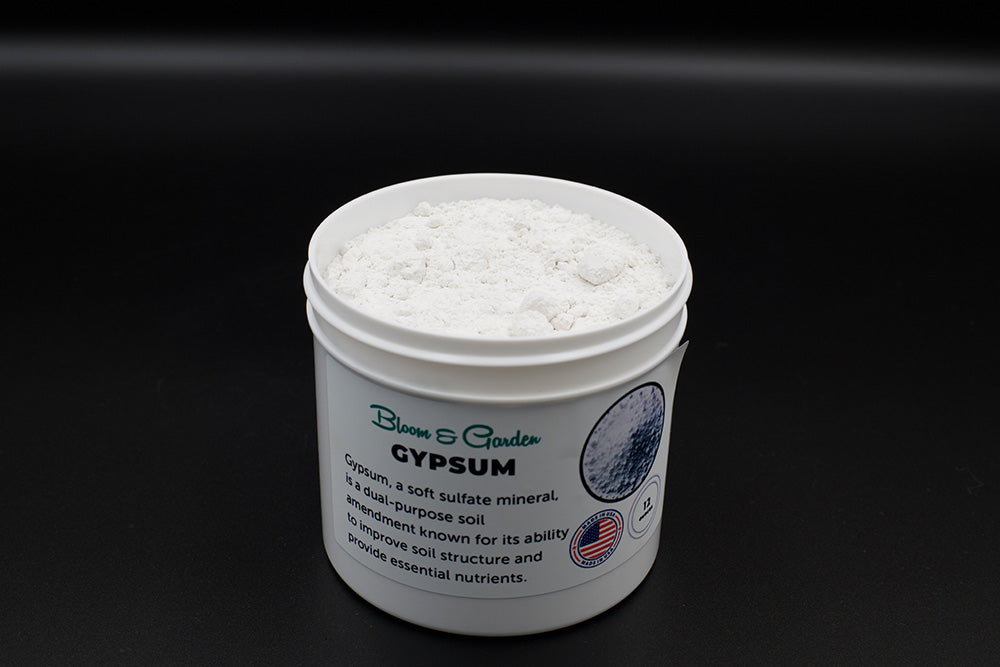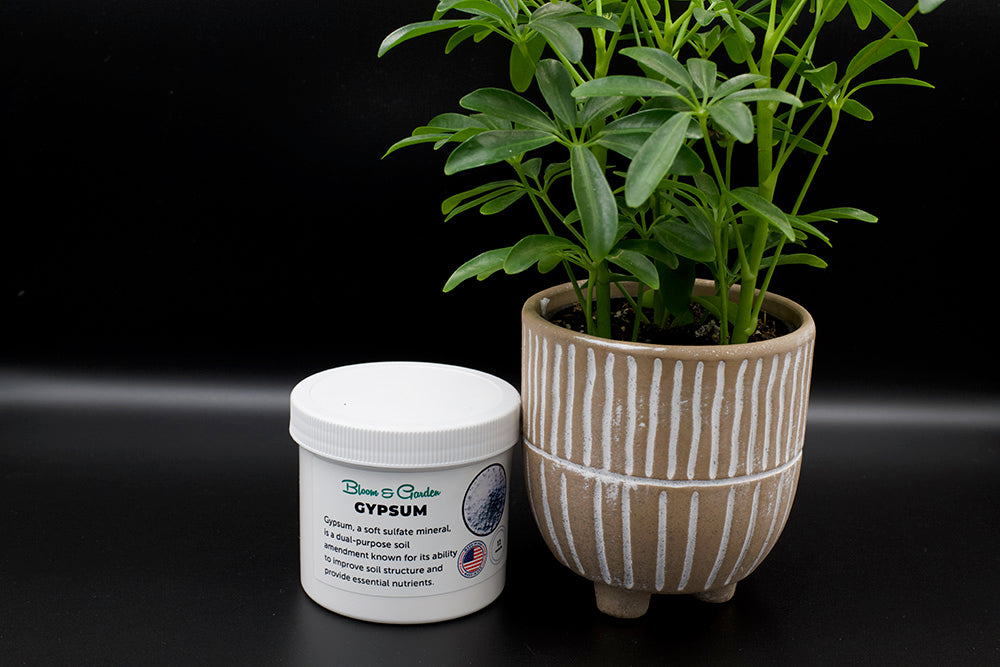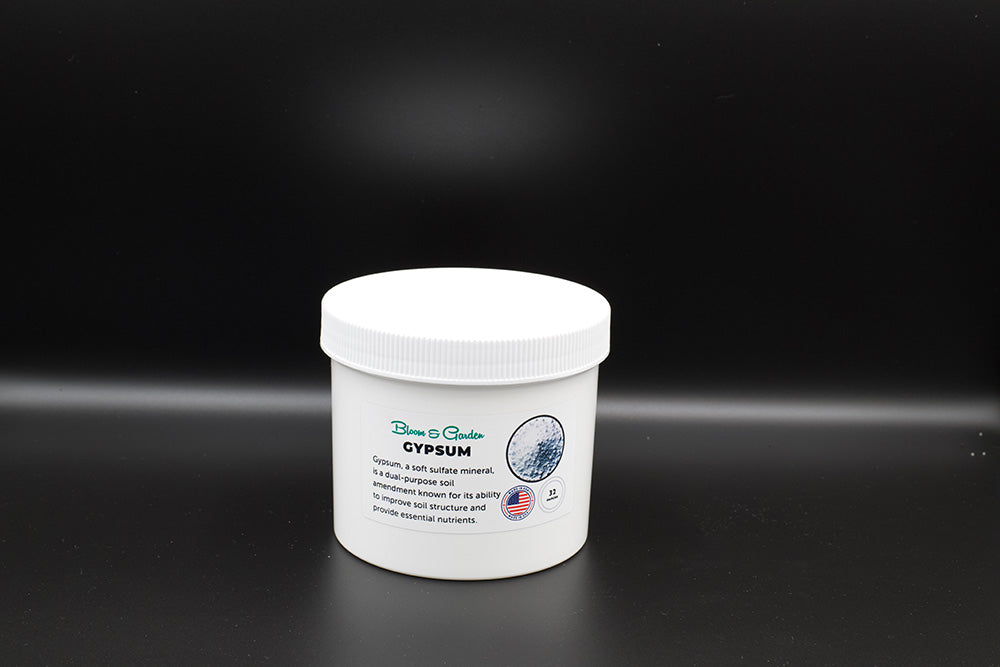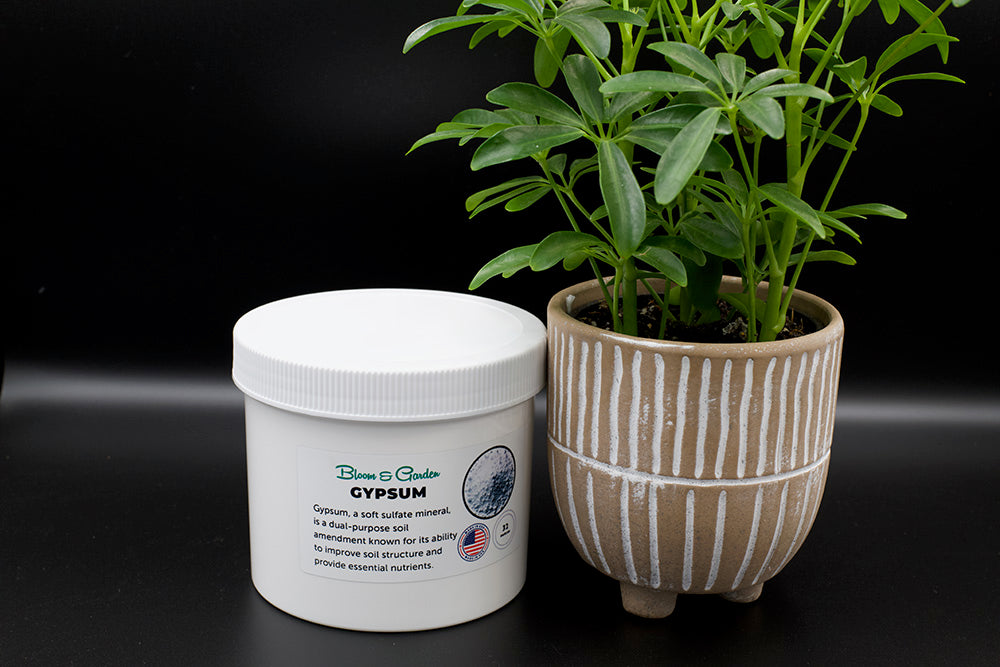Bloom & Garden
Gypsum
Gypsum
Couldn't load pickup availability
Gypsum
Soil Structure and Nutrient Supplier
Gypsum, a soft sulfate mineral, is a dual-purpose soil amendment known for its ability to improve soil structure and provide essential nutrients. It offers calcium and sulfur, both crucial for plant growth, without affecting soil pH. This makes gypsum particularly valuable in maintaining the pH balance of your soil while still contributing necessary nutrients.
Calcium from gypsum strengthens plant cell walls, enhancing the plant’s structural integrity and resistance to pests and diseases. Sulfur, a key component of certain amino acids and vitamins, supports plant growth and development. Gypsum’s role in providing these nutrients promotes healthy, vibrant, and productive plants.
One of gypsum’s most notable benefits is its ability to improve the physical structure of heavy clay soils. It helps loosen and aerate compacted soils, facilitating better root penetration and water infiltration. This can significantly enhance root development and reduce waterlogging, a common problem in clay soils.
Incorporating gypsum into your soil mix means that plants will not only receive a steady supply of essential nutrients but also benefit from improved soil conditions, especially in areas with heavy or compacted soils.
For more information and application instructions, see our dedicated page to Gypsum










